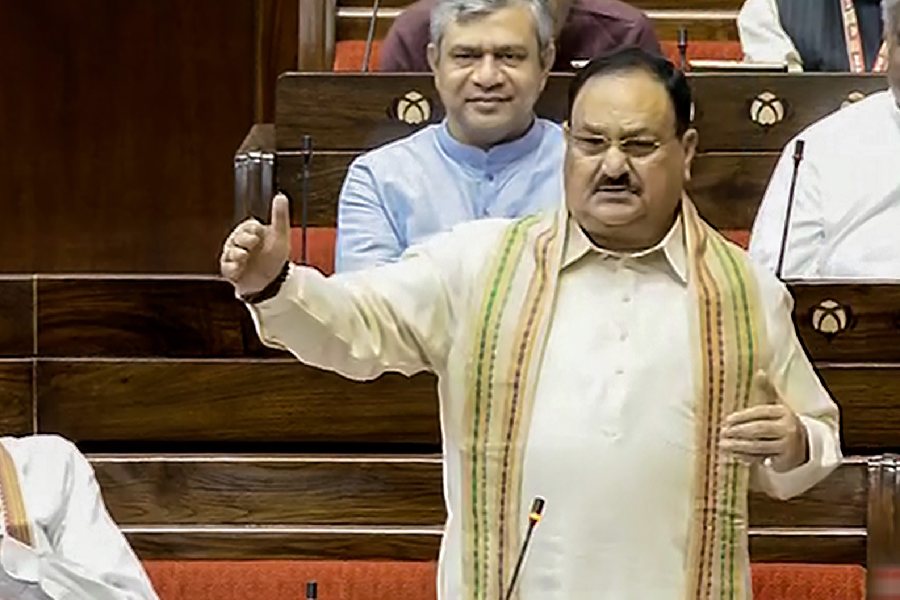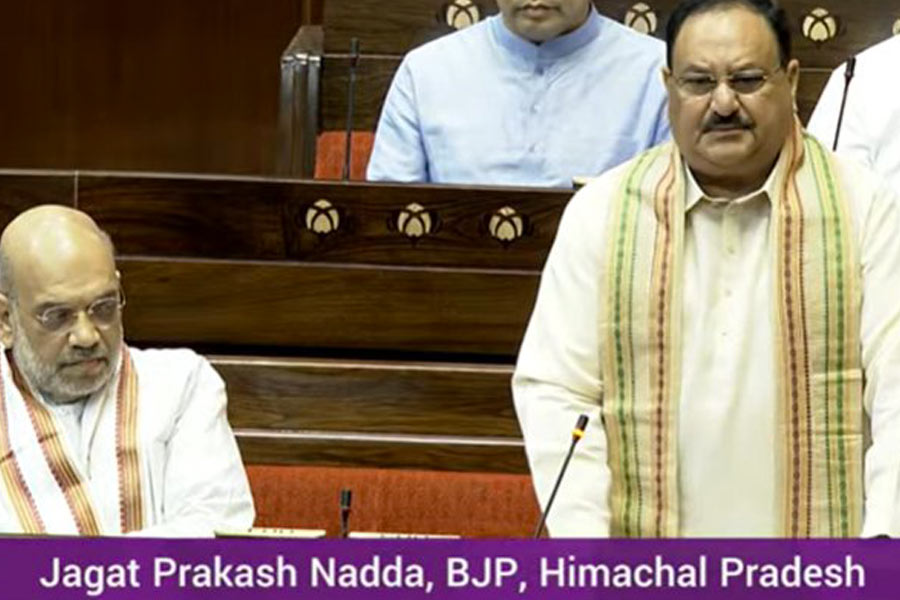BJP president J P Nadda on Thursday came down heavily on the Congress for demanding an OBC quota within the reservation for women lawmakers, saying it was the BJP-led NDA that gave the country its first prime minister from the Other Backward Classes.
Speaking in the Rajya Sabha on the 128th Constitution amendment bill to provide 33 per cent reservation to women in the Lok Sabha and state assemblies, Nadda also appealed to the members of the Upper House to unanimously support the legislation.
The bill was passed by the Lok Sabha on Wednesday.
Nadda said the Congress did not bother about the OBCs while it was ruling the country.
In an apparent reference to Congress leader Rahul Gandhi's remarks regarding the presence of only three OBC secretaries at the Centre, the Bharatiya Janata Party (BJP) leader said the OBC reservation in services was implemented only after the Supreme Court asked for it in 1992.
He said the cut-off for the current panel of secretaries is 1992 and asked the Congress about the number of OBC secretaries during the 2004-2014 period, when the United Progressive Alliance (UPA) was in power at the Centre.
In an apparent jibe at Gandhi, Nadda also said "a leader will have to become a leader" and that taking help from a tutor is not enough.
"They (Congress) talk about the OBCs. We should remember that it was the BJP-NDA that gave India its first OBC prime minister (Narendra Modi)," he said, adding that of the 303 Lok Sabha MPs of the BJP, 85 belong to the OBC category.
Also, 27 per cent of the BJP MLAs and 40 per cent MLCs in the country belong to the OBC category, he added.
Nadda further said the BJP has more MPs from the OBC category than the overall strength of the Congress party in the Lok Sabha.
Referring to "triple talaq", he alleged that the opposition party was engaged in minority appeasement and vote-bank politics.
Nadda also highlighted the measures taken by the Modi government towards women empowerment.
On the opposition insisting on immediate implementation of the reservation for women lawmakers, he said a government is run by rules.
"The BJP's intention is not to take any political advantage (from the women's reservation bill). If we were to take political advantage, we would have said that it would be implemented from now itself," he said.
The BJP leader said the procedure being followed by the government for the bill is the "only way, the shortest way, the correct way".
Earlier, Law Minister Arjun Ram Meghwal moved the landmark bill to reserve one-third of the seats in the Lok Sabha and state assemblies for women.
The legislation is widely expected to get the approval of the Upper House.
It will then require the approval of a majority of the state assemblies. It will be implemented after a delimitation exercise based on the Census data.
This is the seventh attempt since 1996 to get the women's reservation bill passed.
Women presently make up for nearly half of India's 95 crore registered voters but comprise only 15 per cent of lawmakers in Parliament and 10 per cent in the state assemblies.
The 33 per cent reservation for women will not apply to the Upper House of Parliament and state legislatures.
Except for the headline, this story has not been edited by The Telegraph Online staff and has been published from a syndicated feed.












